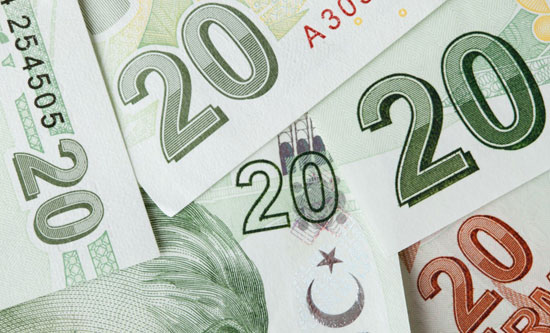
Turkey’s currency crisis threatens to become an economic crisis which could in turn produce a political crisis for the Erdogan regime. The Turkish lira has fallen 40% against the US dollar since February 2018. Despite President Erdogan railing against high interest rates as ‘the mother and father of all evil’, and claiming that they cause inflation rather than cure it, Turkey’s central bank was forced to raise its basic lending rate to 24% on 15 September. Five days later, the finance minister, Erdogan’s son-in-law, announced spending cuts of nearly $10bn. Erdogan then declared a ban on using foreign currencies for a number of business contracts and gave Turkish companies 30 days to convert foreign currency agreements into lira, but he did not specify at what rate. Erdogan blamed an international conspiracy against Turkey for the lira’s fall and the consequent measures his government has had to take, but the problems are embedded in the economy and are not confined to Turkey.
The lira’s fall accelerated in August when the US imposed tariffs on imports from Turkey; 50% on steel and 20% on aluminium. The US also placed sanctions on Turkey’s interior and justice ministers for their roles in detaining the US pastor Andrew Brunson. Brunson was arrested in October 2016 and charged with espionage and is accused of involvement with the July 2016 failed coup attempt. The US government views Brunson as being held hostage by the Turkish state, which wants the US to extradite the Turkish cleric Fethullah Gulen, who lives in Pennsylvania. Erdogan believes Gulen to be behind the coup attempt.
Wrangling over the two clerics has not helped Turkey, but a solution to this dispute will not alleviate Turkey’s problem. Since he became Prime Minister in 2003, Erdogan and his Justice and Development Party (AKP) government have won elections partly because of a steady rise in many people’s incomes. That growth was financed by foreign money and is coming to an end as the debts need paying. Foreign currency loans make up about 40% of the Turkish banking sector’s assets. According to the Bank of International Settlements (BIS), local lenders in Turkey, including foreign-owned subsidiaries, have dollar claims on them of $148bn, up from $36bn in 2006, and euro claims of $110bn. As the Turkish lira slides, these debts become unpayable and bankruptcy looms.
Turkey’s non-financial companies’ foreign currency liabilities outstrip their foreign exchange assets by more than $200bn. Turkey needs $240bn of external financing in the next 12 months. This is an economy facing a precipice. International finance demands an attack on living standards.
With its currency falling, Turkey’s imports rise in price. Turkey’s inflation has reached 18%, transport costs are up 24.2% on the year; household goods have risen by 23.3% in price and animal feed is up about 50%. Food prices will rise steeply. Additionally, annual military spending has risen 27% since 2015, funding the unwinnable war on the Kurds.
The BIS says that what it calls emerging markets (of which Turkey is one) have doubled their dollar debt to $7.2 trillion over the past decade. As the US raises interest rates and reverses quantitative easing, the creation of money, so the dollar is rising on foreign exchange markets and becomes more costly. Debts such as those owed by Turkey become more onerous and even impossible to pay. No wonder international financiers are worried that what is happening in Turkey may become contagious.
Trevor Rayne
Fight Racism! Fight Imperialism! 266 October/November 2018




